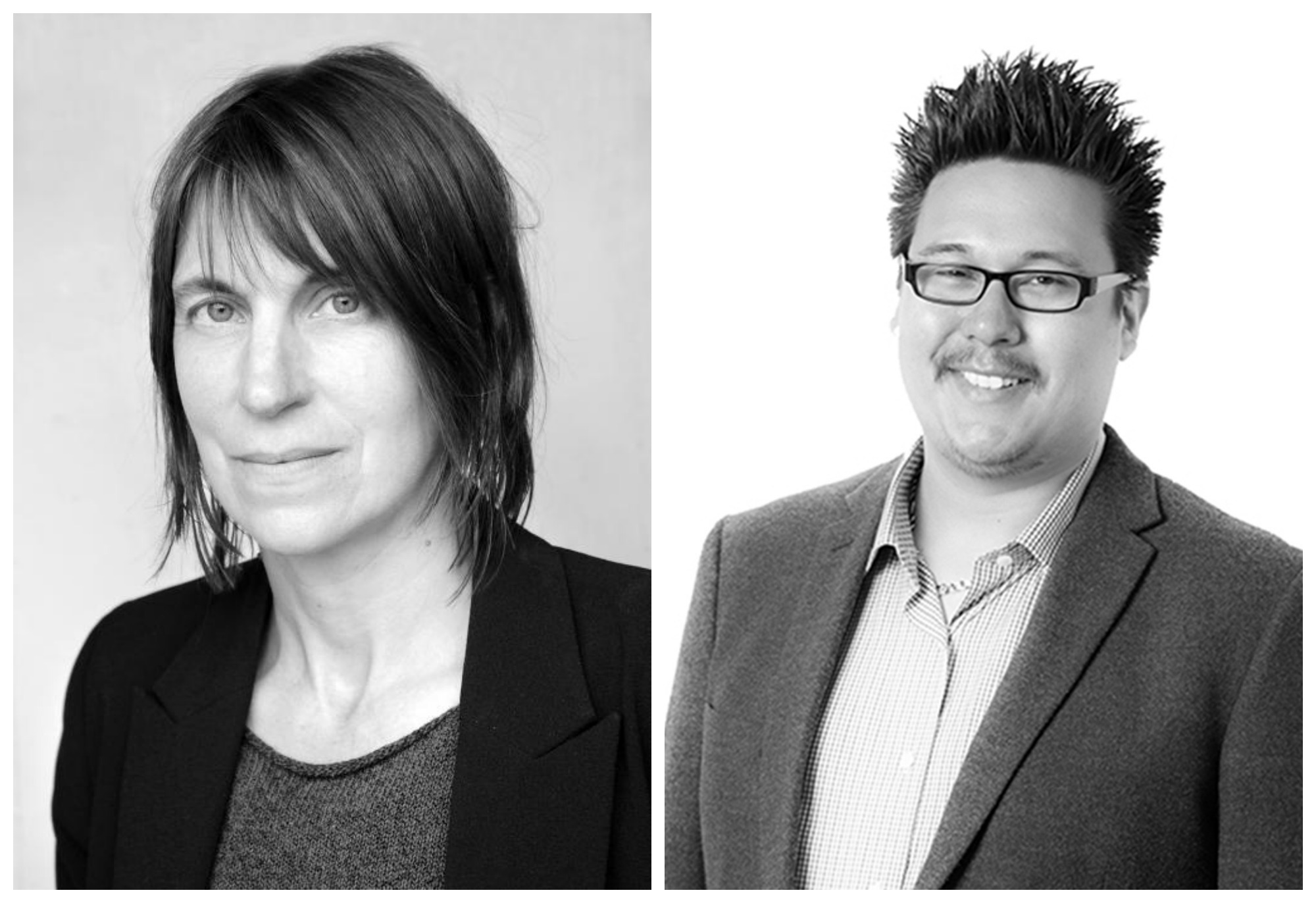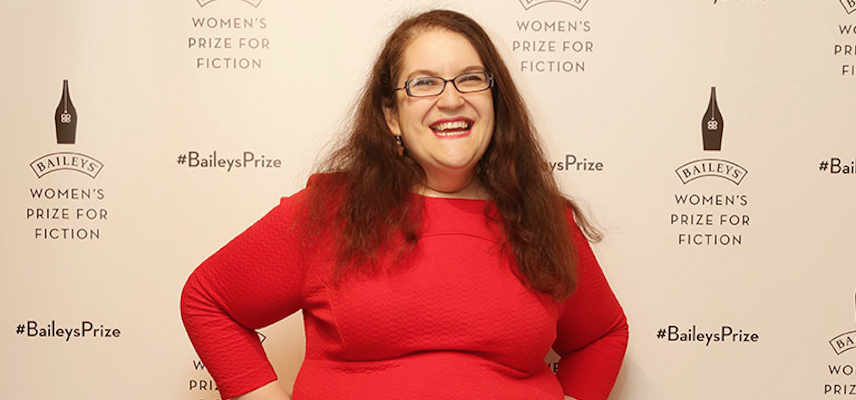Christine Penney is newly retired. She is excited and daunted by discovering her voice again in writing through P&W–supported workshops at Goddard Riverside Community Center’s Senior Center in New York City, where she worked as a program coordinator for fourteen years. Many moons ago, she cowrote a one-woman show “Kaethe Kollwitz Presents a Brief History of Modern Art,” and performed it in New York City. Acting in theatre, television, and films in the San Francisco Bay Area and New York City spanned her early years. She raised a brilliant and deeply loved and admired daughter, Kalen Wheeler, in a railroad apartment on the Upper West Side, who is her greatest support.
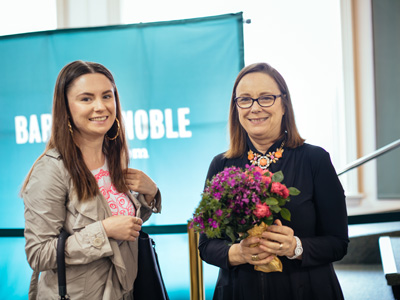 The Poets & Writers’ Connecting Generations Sixteenth Annual Intergenerational Reading took place on Saturday, June 17 at Barnes & Noble at Union Square in New York City.
The Poets & Writers’ Connecting Generations Sixteenth Annual Intergenerational Reading took place on Saturday, June 17 at Barnes & Noble at Union Square in New York City.
Poets & Writers began this event in 2001 to celebrate the work of elders and teens, who have participated in writing workshops supported by the Readings & Workshops program throughout New York City. It began in a community room at Goddard Riverside Community Center’s Naturally Occurring Retirement Community program with ten readers and has grown to thirty-five plus readers.
The age span for the participating readers this year was about fifty years. The seniors were from Goddard Riverside Community Center, Stanley Isaacs Neighborhood Center, Grand Street Settlement, Kew Gardens Community Center, Lincoln Square Neighborhood Center, and the Center for Black Literature at Medgar Evers College in collaboration with Siloam Presbyterian Church. The young adults were from Union Square Slam, Urban Word NYC, and the Capicu Cultural Showcase and La Sopa NYC, the School of Poetic Arts.
For fourteen years I worked behind the scenes as a program director at the Goddard Riverside Community Center. From the time I was hired to the time I retired, Poets & Writers has supported writing workshops with seniors in this community; inspiring writers of a population seldom heard, whose lifetime of experiences could just as well have dissolved into airy nothing, if not for these workshops.
I would peek through the small window of the art room intrigued by these writers and their rapt attention as they listened to each other’s work. Outside looking in through the door, I could feel their churning minds, imagination, and their deep desire to tell their stories before time ran out. I longed to be among them.
When I retired, I entered the writing workshop. The challenge brought me back to my own creative roots, brought me back to me, and renewed my sense of purpose. I got to read my work for the first time in public and it was thrilling.
This year’s Intergenerational Reading featured issues of immigration, race, sexual identity, domestic abuse, parenting, and love.
Some highlights included a sestina of thumping political injustice by Suzanne Pavel, and lines of poetry from others. In “As a Teacher, I Use My Heart,” Brendan Gellette wrote: “I pull it out in the classroom, leave it on the table.” “Another heart vanished into a steamy mirror, as her father entered,” is how my piece “Bath Time” ends. “You’ll thank me for this some day. And took out his belt and buckle,” wrote George Schirmann. In I. S. Jones’s poem (to be published in Anomaly, formerly Drunken Boat) she wrote: “You break me with love because this is your inheritance, a family heirloom.”
Protesting vaginas and slamming sexual confusion rapped out in beats, contrasted with the quiet rhythmic grace of Tony Morris’s piece: “Behold, time is a precious thing. But when you must, answer the call.” Even Marilyn Monroe showed up in a fictional piece by Kathy Wilson, where Marilyn phoned another actor humbly asking if he was available to rehearse a scene for a Lee Strasberg class.
Young or old, we took our moment, whether unapologetically flinging it out with the raw, passionate urgency of youth, or tiptoeing softly to the end, quietly speaking our truth. The style did not matter. Let no one shut us up about what we see or what we feel, no matter what age, what race, what country, what disability, or sexual orientation we have.
“It made me feel alive, brought me back the anger and injustice I felt as a young adult. Bravo to the young folks’ vulnerability and grit,” said one senior.
“I think it’s a fantastic idea that P&W brings together this wide range of poets in terms of age, race, gender, and life experience. As an emerging poet, it gives me a lot of hope to read alongside seasoned poets because in this particular craft, we play the long game. It gives me hope that if I stay true to myself and what I need out of my work, that I will be alright,” said I. S. Jones.
To return to my creative core is a blessing and the best part is finding a community of like-minded people to share this new discovery with. Thank you to my friends in the writing group, to our loved and trusted workshop facilitator Elena Alexander, and to Bonnie Rose Marcus, director of the Readings & Workshops (East) for inviting me to write this blog. And thank you Poets & Writers for this gift, offering us a platform to express ourselves, listen to others, and learn!
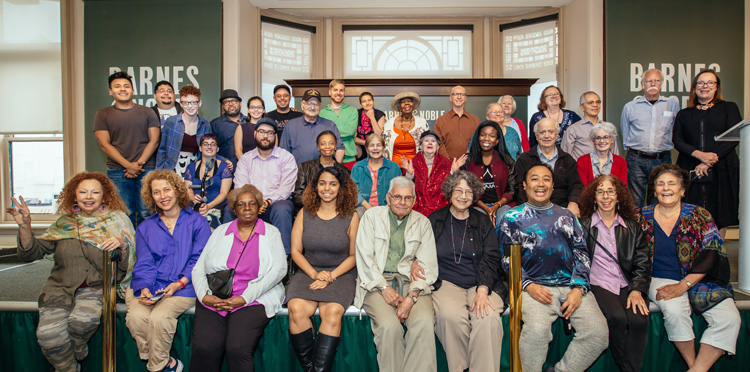
Support for the Readings & Workshops Program in New York City is provided, in part, by public funds from the New York State Council on the Arts, and the New York City Department of Cultural Affairs, with additional support from the Frances Abbey Endowment, the Cowles Charitable Trust, and the Friends of Poets & Writers.
Photos: (top): Christine Penney and her daughter Kalen Wheeler (Credit: Margarita Corporan). (bottom): Readers and host Regie Cabico (Credit: Margarita Corporan).




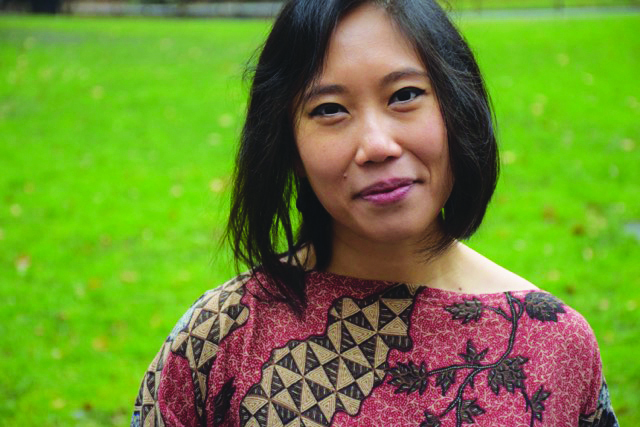
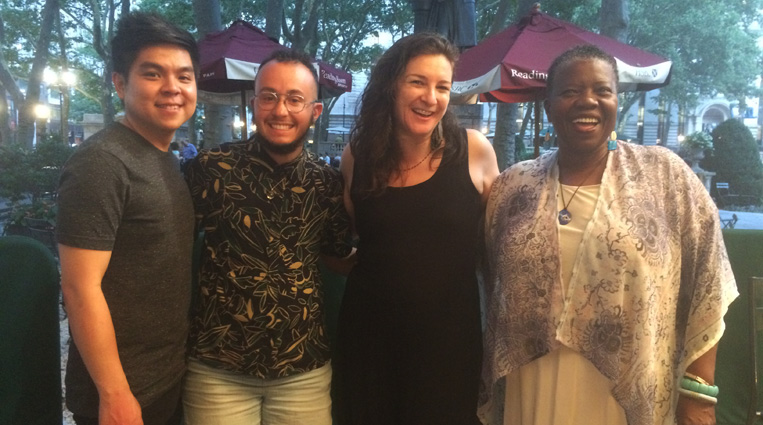
 The Poets & Writers’ Connecting Generations Sixteenth Annual Intergenerational Reading took place on Saturday, June 17 at Barnes & Noble at Union Square in New York City.
The Poets & Writers’ Connecting Generations Sixteenth Annual Intergenerational Reading took place on Saturday, June 17 at Barnes & Noble at Union Square in New York City.
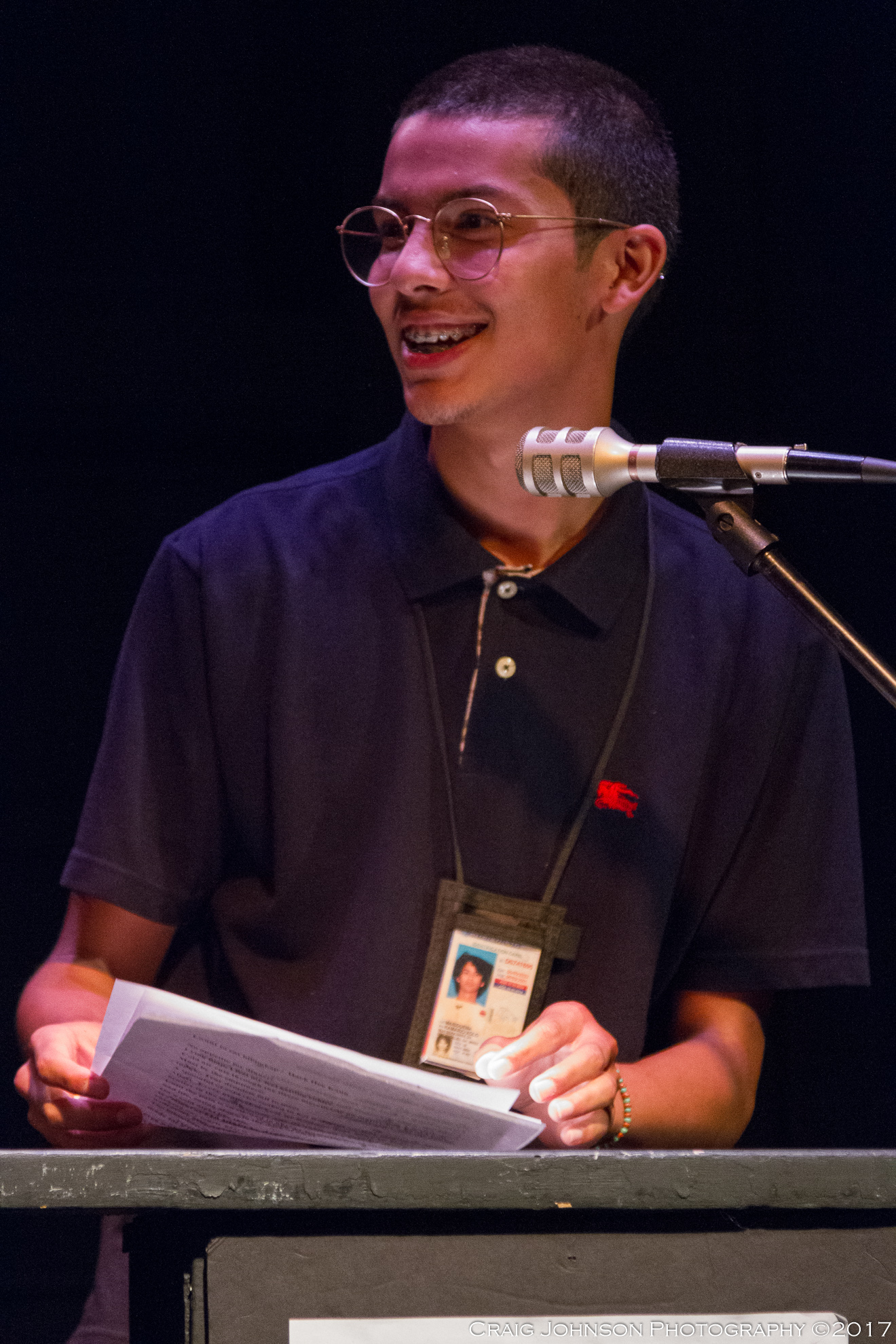 Among the eleven readers, who all gave strong readings, were four teen writers, including Xolo Maridueña, a fifteen-year-old sophomore who attended a R&W–supported writing workshop with Jeff Chang at the Boyle Heights Arts Conservatory in March. Xolo read his first poem ever—a poem about falling in love, in which he wrote: “When I would see her, the butterflies in my stomach would turn into pterodactyls,” an experience I’m sure many in the audience could relate to. Also writing on the theme of love was another teen writer, Ashla Chavez Razzano, representing 826LA, who wrote, “a spider’s web taught me to love.” Nadia Villegas, also representing 826LA, read a poem about how “blue nail polish is freedom,” and Vera Castañada from the Boyle Heights Arts Conservatory called the neighborhood around Cesar Chavez Avenue where she grew up, “the West Coast Ellis Island.”
Among the eleven readers, who all gave strong readings, were four teen writers, including Xolo Maridueña, a fifteen-year-old sophomore who attended a R&W–supported writing workshop with Jeff Chang at the Boyle Heights Arts Conservatory in March. Xolo read his first poem ever—a poem about falling in love, in which he wrote: “When I would see her, the butterflies in my stomach would turn into pterodactyls,” an experience I’m sure many in the audience could relate to. Also writing on the theme of love was another teen writer, Ashla Chavez Razzano, representing 826LA, who wrote, “a spider’s web taught me to love.” Nadia Villegas, also representing 826LA, read a poem about how “blue nail polish is freedom,” and Vera Castañada from the Boyle Heights Arts Conservatory called the neighborhood around Cesar Chavez Avenue where she grew up, “the West Coast Ellis Island.”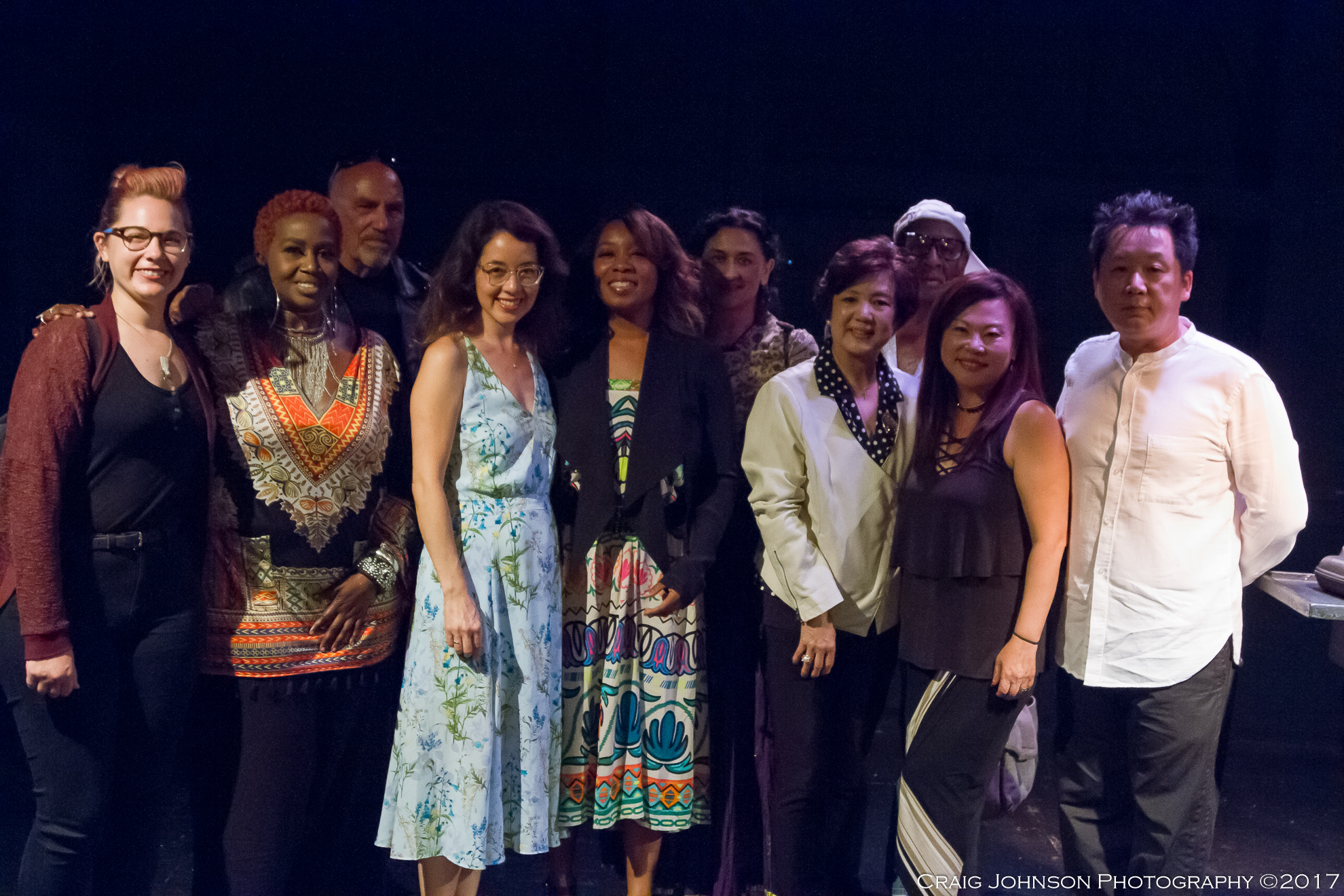
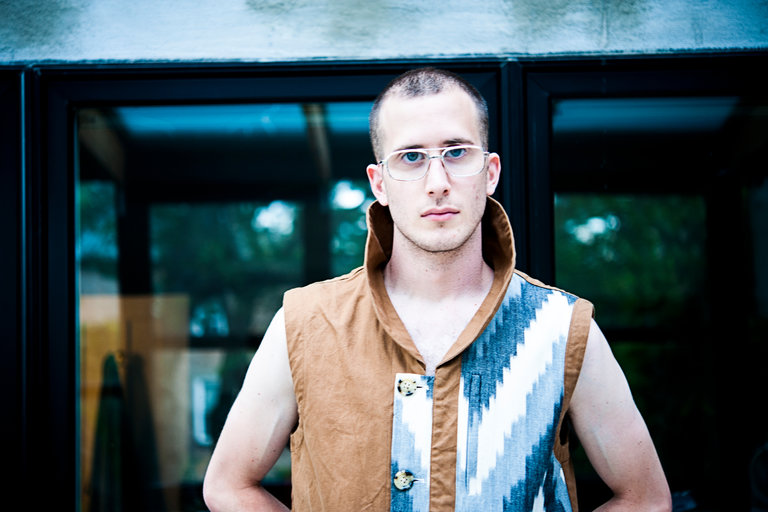
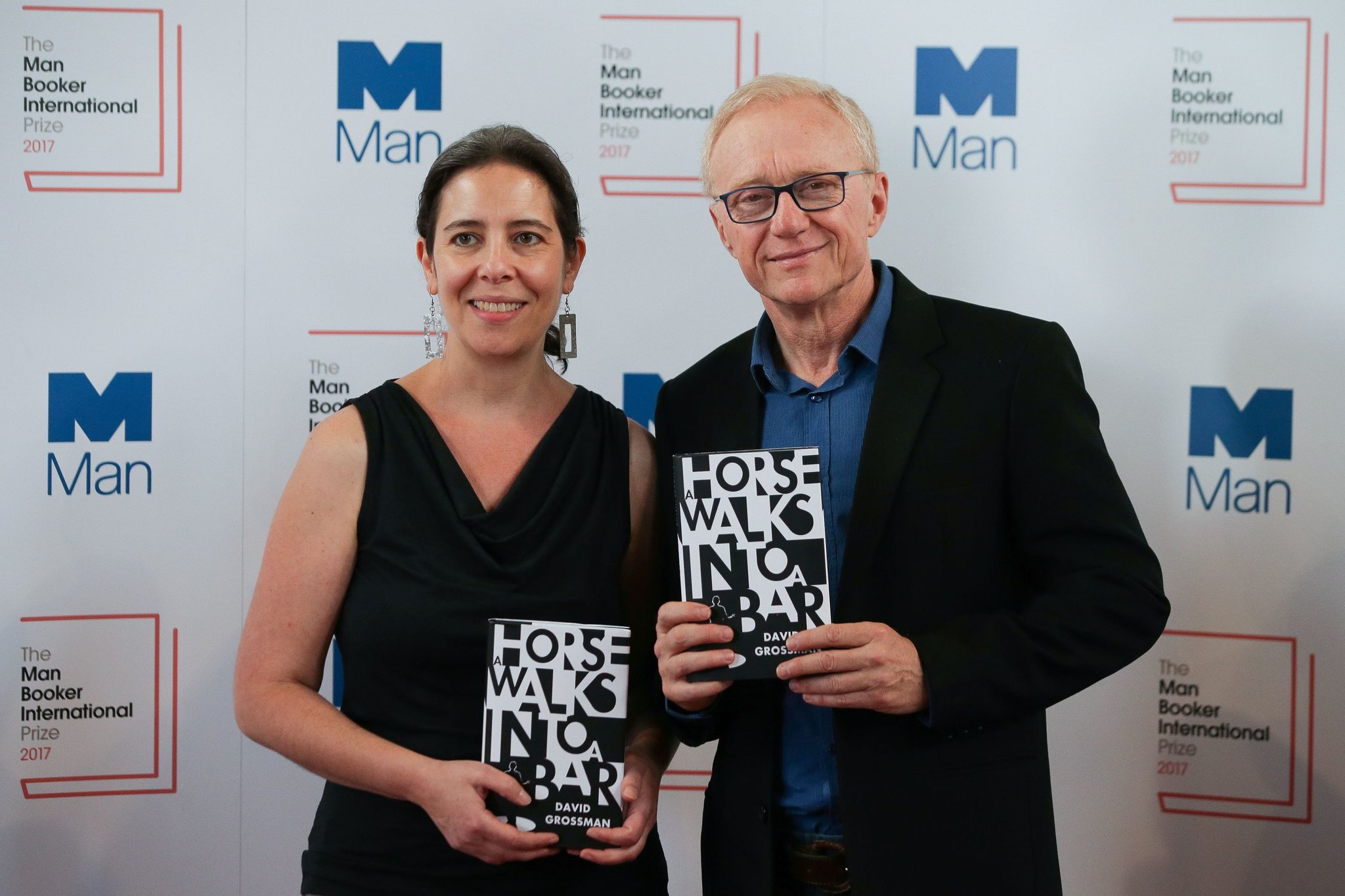
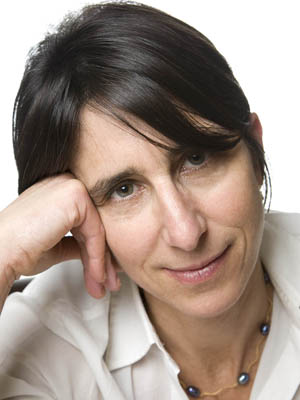 Last winter, Poets & Writers supported a poetry workshop at Footsteps, the only agency in North America providing services for people venturing out of the insular world of Jewish ultra-Orthodoxy. I had heard about Footsteps through a fellow social worker, Jesse Pietroniro, who was a Footsteps staff member—and I was immediately drawn to working with this community. (A stellar feature piece about Footsteps, “The High Price of Leaving Ultra-Orthodox Life,” was recently published in the
Last winter, Poets & Writers supported a poetry workshop at Footsteps, the only agency in North America providing services for people venturing out of the insular world of Jewish ultra-Orthodoxy. I had heard about Footsteps through a fellow social worker, Jesse Pietroniro, who was a Footsteps staff member—and I was immediately drawn to working with this community. (A stellar feature piece about Footsteps, “The High Price of Leaving Ultra-Orthodox Life,” was recently published in the 